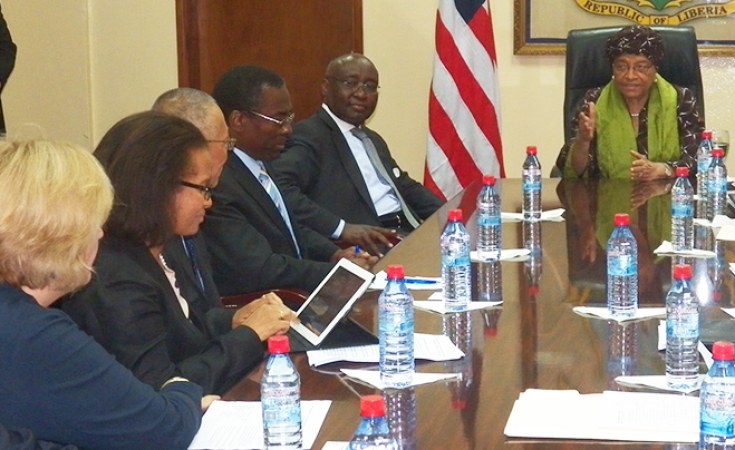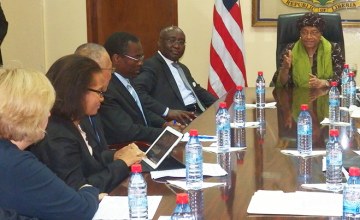Madame Minister,
Mr Director,
It is my great honour this morning to sign this donation of 60 million US dollars to tackle the Ebola crisis - a crisis that is not only ending people's lives, but is also affecting our health systems and economies.
Back at the start of this epidemic we made an emergency donation of 4 million dollars to the countries involved.
Today, the urgent need is to strengthen health systems, recruit staff, equip the treatment centres, and for laboratories, a range of materials and detection equipment for borders. There is also a need to destroy contaminated items. All things that the centres need to respond to this type of epidemic.
I thank the WHO, which has agreed to be the implementation agency, in the light of its experience in this field.
The role of the WHO in terms of coordinating the multiple agencies involved in this struggle will be crucial.
I thank Dr. Sambo, WHO Regional Director for Africa, who has agreed to come in person for this signing ceremony with us this morning.
I believe that we will be the first development organisation to disburse funds, and also the one disbursing the largest amount of funds.
The Ebola crisis is a major cause of concern for a number of reasons:
Firstly, in spite of combined efforts, the crisis seems to be extending and is becoming the most serious crisis we have known for a long time.
The Ebola crisis is taking, among its first victims, the brave men and women working in our health services.
The crisis not only threatens people's lives but also health systems, endangering their capacity to treat other diseases.
We are being told today that in the countries affected, people with normal diseases, such as malaria, and even expectant women, do not know which saint to pray to, given the lack of health professionals.
Ebola threatens economies too. This crisis is probably going to cost countries in the Mano River Region 1 to 1.5% of their GDP. A region that was, with difficulty, beginning to get back on its feet after years of crisis during the war in Liberia and Sierra Leone.
Ebola endangers food security, since agricultural activity has not received the attention it has needed during this season.
Beyond the immediate crisis and in the medium term, the increase in closures of land and air borders in many African countries as a precautionary measure is going to bring a heavy cost to trade and economic life in general.
It also needs to be said: The crisis is a risk for the continent's image, in terms of reductions in the flow of investments and the formation of a new stigma, just when Africa is taking off.
And so this is urgent for all our countries.
The Ebola crisis has exposed the structural weakness of our health systems. When Ebola is beaten, there will be other epidemics, or even pandemics, for which we will need to be better prepared.
Our response will then be on three levels:
The emergency: 60 million dollars
The medium term
The structural problems: 150 million dollars
I would like to take this opportunity to recognise the other partners who should be here with us in this struggle against this new challenge that threatens African lives and African economies.
The AfDB commits to being a resolute partner in this struggle.
Thank you.



